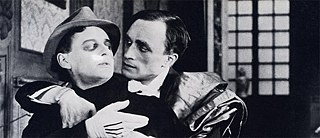Talk
Germans, Jews, Sex

In the landmark Obergefell v. Hodges decision of 2014, the US Supreme Court recognized the right of same-sex couples to marry, which was undoubtedly a significant victory for those fighting for equal rights for gays and lesbians. Nevertheless, demands for the full-equality of sexual minorities remain bitterly contested, both in the courts and in society. As this long struggle continues, it is an opportune moment to reconsider the key role that German-Jewish reformers played in advancing an understanding of human sexuality that has informed the gay and transgender rights movements.
Nearly a century ago in Weimar Germany, a group of physicians and psychologists around Magnus Hirschfeld, many of them Jewish, fought to end the criminalization of homosexuality in Germany with arguments based on a study of human sexuality that was empirical and descriptive rather than normative. The inscription above the door of Hirschfeld’s Institute for Sexual Science in Berlin read Per Scientiam ad Justitiam – “Through Science to Justice”. At the same time, Jewish feminists played a major role in movements for birth control, abortion access, and women’s sexual agency.
Atina Grossmann (Cooper Union), a scholar who has written widely on birth control and abortion reform in Germany as well as Jewish history, will lead a discussion with author and therapist Ruth Westheimer and Robert Beachy (Yonsei Intl. University), author of the new history Gay Berlin: Birthplace of a Modern Identity (Random House, 2015), about how these pioneering figures influenced subsequent and contemporary movements for gay and transgender rights as well as the ways in which their German-Jewish backgrounds may have informed their viewpoints.
Details
Center for Jewish History
15 West 16th Street
New York, NY 10011
Language: English
Price: Members $5/ Non-members $10